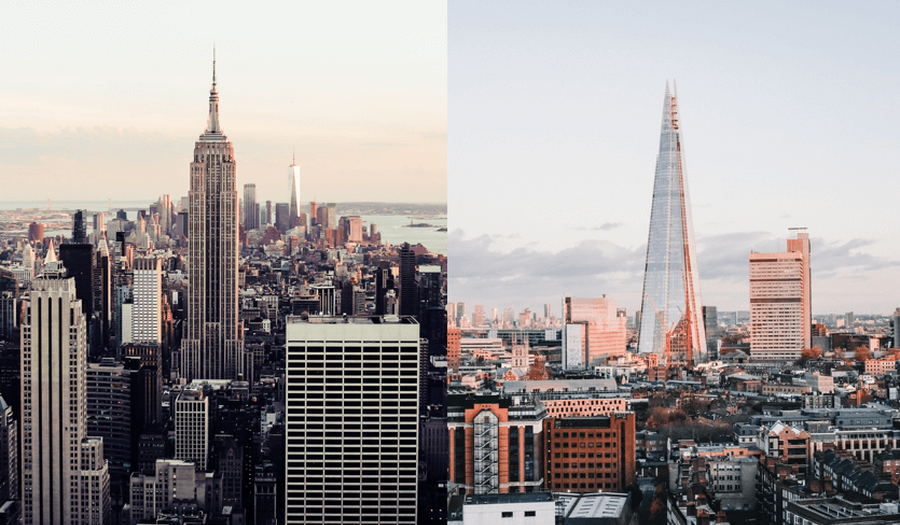
London and New York City have comparable populations, and are seen as the Western World’s urban colossi but how does the New York Innovation market compare to London.
Their bustling economies have afforded careers for millions and, in both cities, the creative industries underpin a sizeable economic output. Marketing Consulting Services, a sub-sector of the creative industry, is one of the fastest-growing areas with services ranging from innovation strategy and proposition design, to customer experience and digital transformation. It is this sector we place the spotlight on.
Talking to Nick Jones, a leading innovation strategy practitioner who held senior roles at both ?What If! on both sides of the Atlantic, and Inzenka, helps us uncover how the markets differ.
In your experiences of working in both London and New York, how does the innovation strategy industry differ?
It’s not dissimilar in terms of projects and scale. Possibly the US is seeing more entrants from the incubators and digital innovation shops who are much more focused on producing ‘product’ whether that is prototypes, apps etc., rather than simply the ‘idea’.
What they certainly have in common is that the agenda has changed. Clients no longer just want ideas – ‘we have enough of those’. They want to know how to pick the winners and move off the slideware and into revenues.
Are clients focusing on breakthrough/ higher risk innovation and category leaps vs. incremental innovation? And, if so, does this differ between London and New York?
A lot of clients will start talking about innovation and growth in the context of the category leaps: it’s exciting and seductive. The reality is that most / almost all are looking for something a little closer to home. Something beyond incremental brand or product extensions, but more accessible to the capabilities, resources and risk sensitivity of the organisation.
That said, being able to stretch the clients’ thinking toward the breakthrough helps to push the thinking, and ensure the ideas aren’t too ‘incremental’.
It’s not that different between countries: the only real observation is that there needs to be a lot more stakeholder consensus to engage in an innovation project in the US than in the UK.
London is fast-becoming a hotbed for fintech talent, a place where innovation is rife.
What is your view on the talent landscape in New York? More specifically, what do you see as the emerging talent trends, and what does tenure look like for talent within the innovation consulting industry? Similarly, what is your view on London?
Overall there’s a much more energised and focused ambition in New York. It’s where you go to ‘succeed’, rather than to go to work. That’s a slight generalisation, and a lot of it has to do with the ethos of post-grad study that a lot of young innovators have been through, but the ‘can-do’ and ‘thrust’ is certainly stronger there. Coupled with the post-grad element is the greater propensity of ‘the network’. Undergrads and MBA students are indoctrinated into this at an early stage in a way you don’t see nearly as much in the UK. The result is a lot more hiring is done this way.
The face of consulting is changing. What is your opinion on management consultancy vs innovation/design agencies, and the influx of acquisitions happening?
It’s a fascinating space - and everyone is trying to work out where it will land. My own point of view is that a number of the original innovation companies are getting left behind by the incubators and digital houses - who are building solutions and co-investing: rather than being famous for ‘ideas’.We’re seeing the more enlightened ones forming meaningful partnerships: such as Fahrenheit212 with CapGemini, and Market Gravity with Deloitte.
So, both markets are bustling, draw-in top talent, and are home to some of the biggest brands. New York wins on having a more established marketplace for “innovation services” and is home to huge business, and in turn, larger budgets for consulting services.
However, London is fast-becoming a hotbed for fintech talent, a place where innovation is rife. Further, a recent article by FastCo put the spotlight on employee benefits and balance – the US, including NYC, is not very competitive when it comes to taking care of its workers – whereas London was highlighted as one of the more generous cities. In a working world that demands balance, flexibility and freedom, generosity may give London a slight edge.

